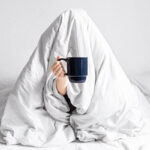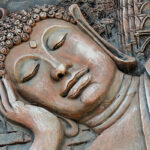What Is the Best Direction for Sleep?
You’ve heard of the perfect sleep position and you’ve likely read about how to create the ideal sleep environment, but what about sleeping in a particular direction? Did you know that the interior design and layout of your bedroom, including where and how your bed is positioned, can actually impact how well you sleep?
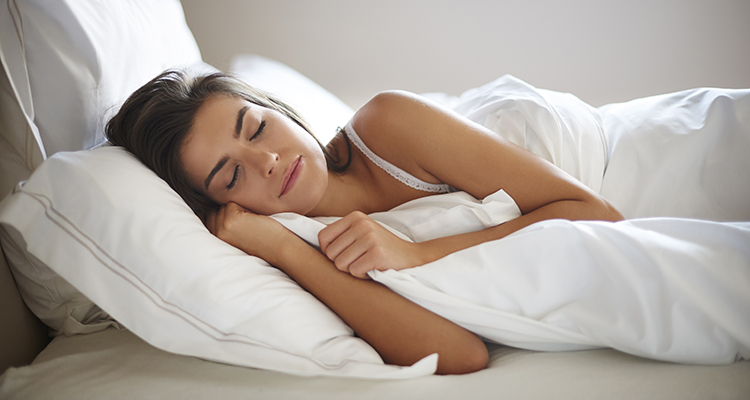
While there’s little scientific evidence to support these claims, certain researchers and Feng Shui supporters (the Chinese practice that claims energy forces harmonize with a person based on their environmental surroundings), believe that there is a right and wrong direction to sleep for optimum results.
So, before you prop up your pillow and settle in for the night, keep reading to find out the best direction for sleep and if you should make adjustments to your current sleeping arrangements.
Content
What is the Best Direction for Sleep?
According to Vastu Shastra, an ancient Indian tradition concerned with space and used as a scientific principle for architectural design, the best direction for sleep is facing south. This means that when you’re lying in bed, your head should be pointed south, with your feet facing north. Vastu Shastra practitioners believe that buildings and structures are living organisms that can and should be organized in harmony with the energy around them.

Believe it or not, this theory is backed by some scientific research. For starters, it’s believed that certain animals (including cattle and deer) naturally align their bodies for sleep in a south-north direction. They adopt this same position while eating. Studies on human test subjects found that when a person sleeps in a southward-facing direction, they experience a drop in their blood pressure and notice a marked improvement in overall sleep quality.
Other theories attribute this phenomenon to the Earth’s electromagnetic pull. Hindu mythology believes that the human body possesses internal south and north poles, similar to Earth. And only when these “poles” are facing the right direction, is your body in true harmony and, therefore, able to achieve quality sleep. This involves having your head, or north pole, facing south so that the opposite poles can attract. If you lay with two similar poles facing each other, you may experience headaches and a spike in your blood pressure.
There have been several studies done on this theory. One such study, which lasted three months, found that individuals who slept in a north-south direction experienced better sleep quality, lower blood pressure, and longer sleep duration than those who slept in an east-west direction. Based on this study, it’s believed that sleeping in alignment with the Earth’s electromagnetic field may help ease insomnia symptoms and improve sleep quality.
Another study observed that when participants were exposed to manipulated electromagnetic fields, it showed a change in their brain wave activity. These results indicate that the human brain and body may be more sensitive to the Earth’s magnetic energy than once believed.
What Happens If You Sleep In the “Wrong” Direction?
So, what happens if you flip these theories on their heads? Literally! Can sleeping with your head to the north vs the south really have that big an impact on your sleep quality? And does that mean it’s equally risky to sleep facing the east or west?
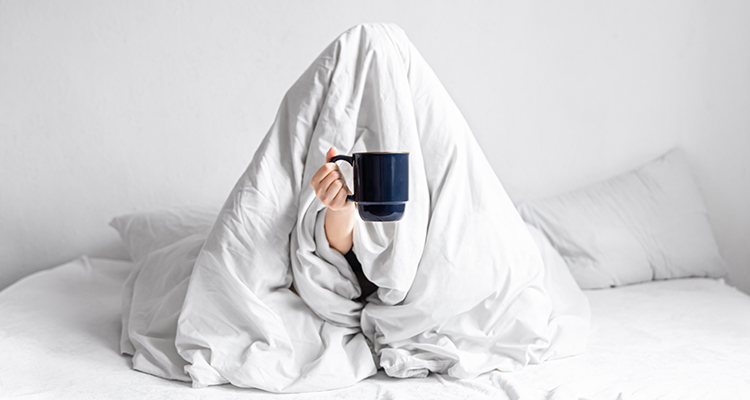
According to Vastu Shastra, the “worst case scenario” would be sleeping with your head facing north. It’s believed that sleeping in this direction can cause unwanted tension in your neck and shoulders, triggering headaches and other health issues. One study suggests that people who sleep in a north-south direction may also find it more difficult to fall asleep and take longer to enter REM sleep. The REM sleep stage is the most important part of your sleep cycle and vital for mood regulation, cognitive function, and overall well-being. The study also suggested that east-west sleepers entered REM sleep quicker than north-south sleepers but achieved less quality sleep overall. Because of these inconclusive results, more research is needed to determine the benefits and pitfalls of sleeping in other directions.
If you decide to adopt the south-north sleep direction, experts suggest that you take it one step further and design your entire bedroom around this premise with the furniture and other accessories all oriented southward.
Other Eastern Medicine Principles on Sleep
Sleeping in a southerly direction isn’t the only way to improve sleep quality, according to Eastern medicine. The practice of Vastu Shastra offers many other sleep principles including Feng Shui. By arranging your bedroom furniture in such a way, it’s believed that you can encourage a flow of positive energy (also known as chi) throughout the environment. Each piece of furniture represents a different emotion and should be placed in a specific place or position. For example, placing a love seat in your room is believed to improve your love life. To achieve the best chi for sleep, position your bed against the wall.
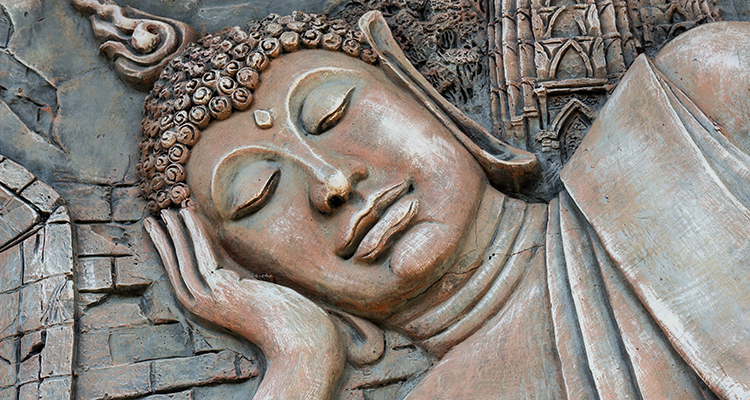
While some of these suggestions and practices may seem unconventional, they all surround the same belief that designing the ideal sleep environment will also promote overall good health and well-being.
Here are some other suggestions from the ancient practices of Feng Shui and Vastu Shastra that may improve not just the energy in your bedroom but also your sleep quality and overall health and well-being.
Position Your Bed Harmoniously
Did you know that the way you position your bed can either help or hurt your sleep quality? According to Feng Shui principles, your bed should be placed directly against a wall and not beneath a window. Ideally, your bed should be on the wall directly opposite your bedroom door. While it’s best that you can see your doorway from the bed, your bed shouldn’t be directly in line with the entryway. Placing your bed here is called the “command position”, which promotes empowerment. If this isn’t possible, place a mirror strategically so that you can still see your bedroom door and maintain a sense of control.
Feng Shui also suggests you don’t sleep with your feet pointed toward the door. This is known as the “coffin position” and is believed to bring bad luck and negative energy into a room. This sleep direction gets its name because this is the way a person is carried out of a room after they’ve passed on – feet first.
Declutter
Having a messy or disorganized bedroom does more than just make it difficult to find what you need. It’s believed that a cluttered bedroom creates a cluttered mind and can increase feelings of stress and cause overstimulation. Feng Shui suggests that a messy bedroom can interfere with the positive flow of energy in your bedroom. Too much clutter blocks this positive energy while decluttering your sleep environment makes more room for it. Some studies also suggest that seeing more space between objects improves both your mental and emotional state.
Remove Electronic Devices
It’s no secret that using your smartphone or watching television before bed can interfere with your ability to fall and stay asleep. That’s because the blue light from these digital devices prevents your brain from releasing the sleep hormone melatonin. Instead of feeling relaxed and prepared for sleep, these stimulating lights leave you feeling awake and alert.
Feng Shui practitioners believe that removing electronic devices from the bedroom is the foundation for adopting healthy sleep habits and sleep hygiene.
Promote Positive Energy in Your Bedroom
Cleaning up your bedroom isn’t the only way to improve and increase the chi found here. Feng Shui claims that certain objects can help capture negative energy known as “sha chi”. These include curtains, plants, and artwork. It’s believed that plants have a particularly strong calming effect that can help relieve stress and ward off feelings of anxiety.
If you’re currently in a romantic relationship and sharing your sleep space with a partner, you may want to consider removing anything not related to the relationship. This includes things like a desk or work-from-home station. You can also arrange certain objects in the room to promote love and encourage the relationship to thrive and grow.
Consider a Bedroom Makeover
Furniture arrangement isn’t the only way to promote good sleep and adopt the ancient beliefs of both Feng Shui and Vastu Shastra. Both practices believe that certain color schemes of paint for different directions can promote certain types of energy.
Feng Shui Color Directions
- White or gray to the west for financial prosperity and for use in a child’s room
- Red to the south for power, fame, and a good reputation
- Green to the east to promote creativity and growth and a focus on health and family
- Black or blue facing north to improve communication and your career
Consider painting the accent wall in your bedroom one of these colors. Just make sure that the direction and the color match up.
Vastu Shastra Color Suggestions
Vastu Shastra believes that everyone possesses natural elements called “doshas”. It’s believed that a person should choose a color that best compliments their personality, or dosha. Here are some examples.
- Kapha dosha (earth and water): reds and violets
- Vata dosha (air): yellows and greens
- Pitta dosha (water): blues and greens
You can find numerous online quizzes and tests designed to help you find your dosha. Once you determine this, you can choose a corresponding color.
Other Feng Shui Suggestions for Better Sleep
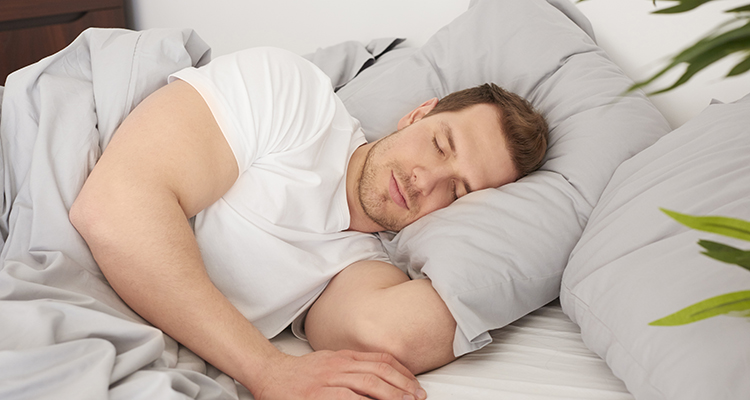
The main premise of Feng Shui is to create a positive flow of energy in your bedroom or living space that isn’t hindered by obstructions. This is why Feng Shui suggests not blocking doors or windows or even placing your bed near these outlets. Other sleep suggestions include:
- Don’t position your bed freestanding in the center of the room
- Always position your bed opposite the doorway (but not beneath a window)
- Avoid placing mirrors or bookshelves directly across from your bed
- Remove clutter (books, toiletries, dirty laundry, paperwork, etc.)
- Don’t use television or other electronic devices in bed
Other Vastu Shastra Suggestions for Better Sleep
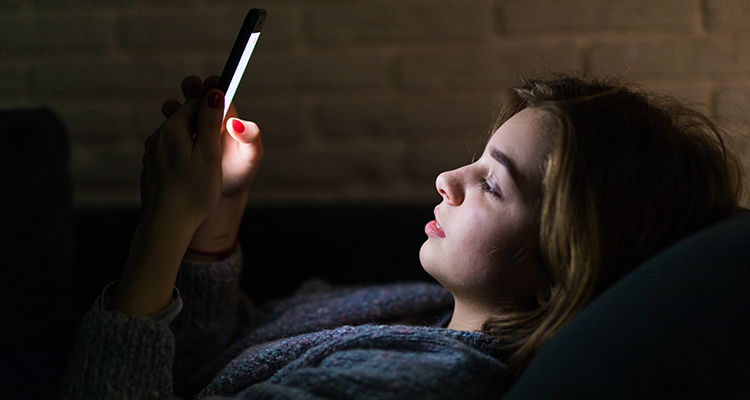
Vastu Shastra’s main focus is aligning your sleep direction with the electromagnetic energies of the Earth. Some beliefs and practices associated with Vastu Shastra mirror those proposed by Feng Shui with minor differences.
- Avoid mirrors facing the bed
- Don’t bring electronics into the bedroom
- Organize and declutter your bedroom
- Use light-colored paint on the walls like cream, white, and other earth tones
- Close all doors and windows inside the bedroom
Arrange Your Body and Bedroom for Better Sleep
In many ways, achieving quality sleep starts from within with a positive and relaxed mind frame. But certain practices place just as much importance on the physical structure and make-up of your sleep environment. Both Feng Shui and Vastu Shastra believe that the best direction for sleep is with your head facing north and minimal obstructions between your bed and the doorway of your bedroom. The wall colors and organization of your room also play a part in how well you sleep.
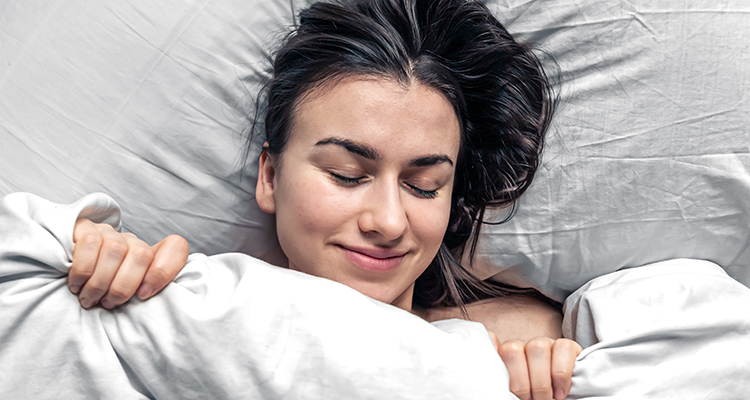
Looking for more tips, tricks, and expert advice on improving your sleep habits and finally achieving the blissful sleep you need? Check out the rest of our blog before you go!


